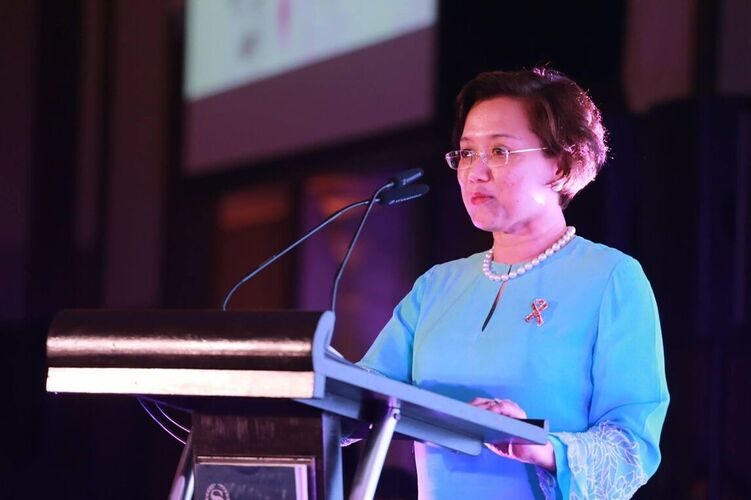
The Federal Territory Islamic Council (MAIWP) and the Perak Islamic Religious and Malay Customs Council (MAIPk) have donated a total of RM210,000 to the Malaysian AIDS Foundation (MAF) for its HIV Medicine Assistance Scheme programme.
MAF chairman Prof Dato’ Dr. Adeeba Kamarulzaman said the foundation is grateful for the contributions and assistance provided by MAIWP and MAIPk.
“We are pleased to announce that MAIWP has stepped in to contribute RM120,000, and MAIPk RM90,000 through the zakatfund to MAF to support HIV medical costs for People Living with HIV (PLHIV) among qualified asnaf(beneficiaries) in Kuala Lumpur and Perak,” she said.
Established by MAF in 1998, the HIV Medicine Assistance Scheme offers subsidised antiretroviral drugs (ARVs) to provide support for life saving second-line ARV treatments for People Living with HIV (PLHIV), she explained.
“This contribution is a one of the activities from the HIV and Islam initiatives with Islamic agencies at the State and Federal level. We hope that the contribution and support from MAIWP and MAIPk will spur other Islamic councils in other states to lend their aid as well,” she said.
Prof Adeeba said the Covid-19 pandemic has hit particularly hard the B40 community, including PLHIV, several of whom became unemployed during the pandemic.
“The contribution from MAIWP and MAIPk is literally a lifeline for those heavily impacted by the twin pandemic,” she added.
MAF said the first line treatment is provided free-of-charge by the government, and those needing second line medications on average, spend as much as RM700 a month for the medications.
Each year, through public donations and corporate sponsors, MAF dispenses approximately RM 1 million to fund the cost of ARV treatment for patients in need.
Currently, only 55% of PLHIV in the country have access to HIV treatment, a rate that is lower than the global average of 73% of the PLHIV population.
Dr Anita Suleiman, chief of HIV/STI/Hep C sector, disease control division, Ministry of Health Malaysia said the support and commitment shown by the two religious councils were timely and in line with the country’s efforts to end AIDS by 2030.
“This commitment will help close the treatment gap, particularly for less fortunate people who require more costly second-line regime, regardless of age, gender, or social standing.
“I hope that this form of collaboration will continue and that other Islamic religious councils in other states will provide equal opportunities to the less privileged people who require care.
“It is hoped that with this aid, persons living with HIV would be able to continue living and, as a result, will be able to prevent the transmission of infection to their partners,” she said.
According to MAIWP chief executive officer Mohd Nizam Yahya, the religious council is serious about the issue of HIV infections among Muslims in the country, especially in Kuala Lumpur.
“We hope that with this assistance, it can ease their burden and allow PLHIV to continue live a normal life to perform their religious obligations efficiently,” he said.
MAIPk chief executive officer Shahrul Azam bin Shaari said it is making a pioneering contribution to help Muslims in Perak who are affected by HIV.
‘The contribution is also an extension of the Covid-19 special assistance program by MAIPk, which was started in 2020. This is our effort to approach with kindness towards Muslims who face challenges, including stigma and discrimination that affect their quality of life,” he said.
MAF said the sponsorship of both agencies began in September 2021 and recipients who receive assistance from the Medical Assistance Scheme will be referred to government hospitals and must meet the eligibility criteria set by MAF.
The MAF Medical Assistance Scheme also obtained full support and recognition from the Malaysian Ministry of Health (MoH), which described the scheme as being in line with the Sustainable Development Goal to End AIDS by 2030, which requires 95% of HIV patients to receive ARV treatment.







